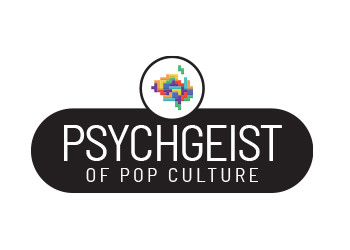
It’s a safe bet that for every Disney fairytale we loved as a child, there was a villain that kept you on the edge of your seat. Or you may have admired a villain whose motivations perplexed you so much that you grew to appreciate their cunning wit and charming disposition despite it pushing your favorite hero away from their good goals. And what about newer Disney stories, where the villain is much less clear-cut?
When people hurt us, we often ask, Why would someone do that? Through The Psychgeist of Pop Culture: Disney Villains, we want to examine that question in depth.
This book is part of The Psychgeist of Pop Culture published by ETC Press collection: a series highlighting iconic pop culture content from television, film, literature, and video games through the examination of the psychological mechanisms that endear us to these stories for a lifetime.
Each chapter will explore psychological concepts brought to the surface by nefarious characters from beloved Disney properties. Be it movies, games, or tabletop campaigns—chapter ideas mixing mediums are most welcome!
Several possible themes and topics are listed below but do not consider this list exhaustive. We also look forward to seeing your original ideas or having you riff off of the ones below:
- Long Live the King—birth order explored through Scar and The Lion King
- Villainous Artifacts: The Importance of contracts, flowers, mirrors, apples, and more in Disney Pictures
- Are You Really a Villain if You’re The One Fighting Agism, Sexism and more? Yzma in The Emperor's New Groove
- Don’t You Derogate or Deride! Dr Facilier’s Exemplification of the Evil Within
- Toxic Parenting and Lack of Positive Self-Worth in Children: Reviewing Elsa and Anna’s Arc in Frozen
- Always Rooting for the Antihero: Redemption of Adam/Beast in Beauty and the Beast
- History Is Written By The Victors: Racial Privilege Through the Lens of Frozen 2
We don’t have 99 happy haunts quite yet, but we do have seven. And there’s always room for one more!
- Let’s Talk About Generational Trauma (and Bruno!) in Encanto
- No One Exemplifies Toxic Masculinity like Gaston!
- Who is King Candy?
- “Mother Knows Best”: Exploring Mother Gothel from Tangled
- Pulling Apart Oogie Boogie from Nightmare Before Christmas
- Representation of the Stepmother Archetype in Disney Pictures
Send an abstract (no more than 300 words), your resume or CV and a brief bio (no more than 2-3 sentences) no later than April 30, 2024.
Timeline outline:
- Closed call for abstracts due Feb 28. Open Abstract Call begins March 15th and closes April 30th.
- Abstract Review Completed by May 15
- Chapter Draft 1: Aug 15
- Return Edits: October 1
- Chapter Draft 2: December 1
- Off to Publishing
- Published Q1 2025
- 479 views
